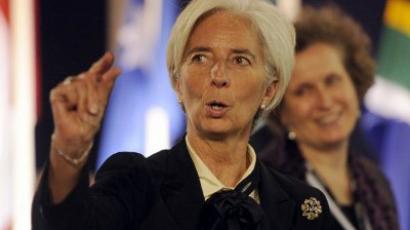Limiting Russian money for European banking

The Central Bank of Russia (CBR) has urged domestic subsidiaries of major European banks to cut credits to their parent companies, saying it doesn’t want to finance the European problems.
The CBR’s proposal comes in the wake of increasing volatility in the European banking sector, where money is shrinking and liabilities are increasing, with Russian banking also being increasingly pressed for money. The regulator is seeking to prevent adverse affects on the local banking sector. Operations of European subsidiaries in Russia usually accelerate current economic trends, which means they could worsen the current situation in Russian banking, that is suffering lack of money, Alexander Vinogradov, chief of the Analytical department of CBR, explained to the Kommersant Daily. “We are critical about this problem, because non-resident banks come to the market under a more benign economic backdrop with their own money: they bring dollar liquidity and contribute to the rouble strengthening”, he said, adding that “as the situation gets worse, this movement reverses”.According to the CBR, the list of banks that massively credit non-resident banks includes about a dozen credit organisations, with more than a half of them being subsidiaries of European banks. Capital outflow always leads to negative consequences for the local economy and banking sector, says Aleksandre Artemiev, Partner at Berkshire Advisory Group, saying that in this case all protective measures are vital.“A ban from the state financial regulator to limit access to additional liquidity is one of the most necessary measures, which is widely implemented by European financial institutions,” he said.














